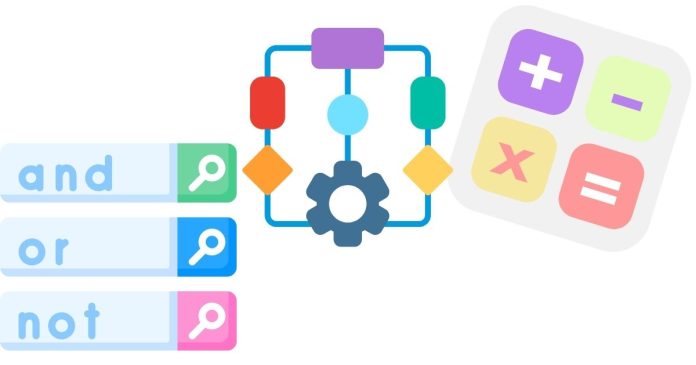Operators in programming are special symbols or keywords used to perform operations on data, known as operands. They are fundamental to constructing expressions and carrying out tasks such as calculations, comparisons, and logical evaluations.
Types of Operators
Arithmetic Operators: Perform mathematical operations like addition, subtraction, multiplication, and division.
Example: +, -, *, /
Relational (Comparison) Operators: Compare two values and return a Boolean result.
Example: ==, !=, >, <, >=, <=
Logical Operators: Combine or invert Boolean expressions.
Example: && (AND), || (OR), ! (NOT)
Bitwise Operators: Perform operations at the binary level.
Example: & (AND), | (OR), ^ (XOR), ~ (NOT)
Assignment Operators: Assign values to variables.
Example: =, +=, -=, *=, /=
Unary Operators: Operate on a single operand.
Example: – (negation), ++ (increment), — (decrement)
Ternary (Conditional) Operator: Provides a shorthand for if-else conditions.
Example: condition ? value1 : value2
Special Operators: Include various unique operators based on the programming language, such as:
Type Operators: typeof, instanceof (in JavaScript)
Pointer Operators: *, & (in C/C++)
Each programming language implements operators differently, but their functionality remains broadly similar across languages.


